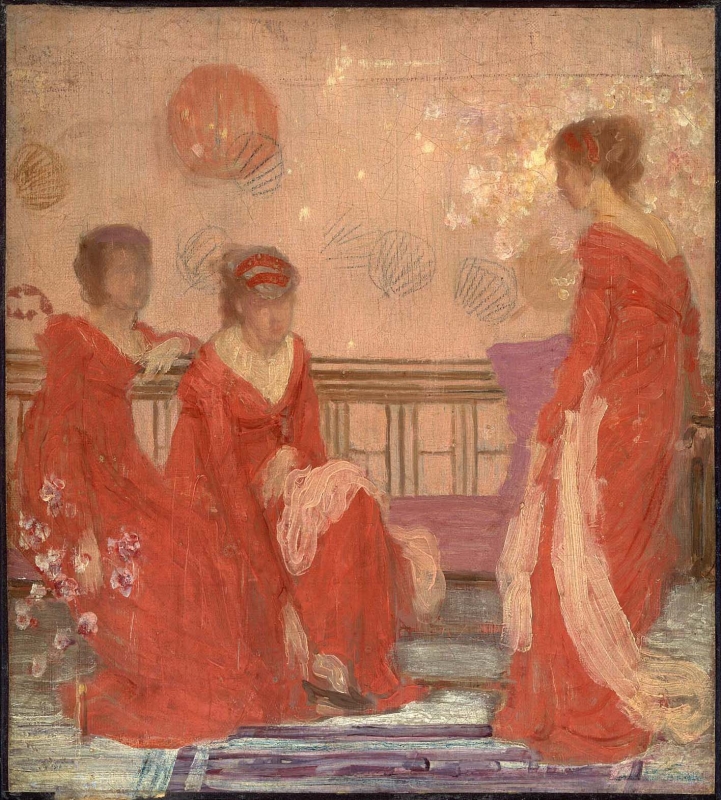Titles
Several possible titles have been suggested:
- 'Harmony in Flesh Color & Red' (ca 1881, Whistler). 1
- 'Three Ladies in Red, on a terrace' (1929, Christie's). 2
- 'Symphony in Red' (1946, Sotheby's) 3
- 'Symphony in Red' (1960, Arts Council). 4
- 'Harmony in Flesh Colour and Red' (1980, YMSM). 5
'Harmony in Flesh Colour and Red', Whistler's own title, is the preferred title.
In this catalogue raisonné Whistler's title or the first published title is retained, wherever possible. Whistler’s use of “flesh colour” to describe colour, as here, could imply a racist presumption that skin tone is defined as 'white' or Caucasian. In this case it describes the 'flesh-pink' of the models' skin, as opposed to any other skin colour, a pink that is echoed in their stoles, the blossom and background.
Description
A figure composition in vertical format, showing three women in an interior. Two women are seated at left. They sit in slight three-quarter view to right, and have brown hair and coral red full-skirted dresses. The dress of the central woman has a low v-necked neckline; she carries a cream stole. Likewise, the standing woman at right, facing left, is in red with a long stole draping almost to the ground behind her. The walls of the room are pale peach pink, decorated with palm fans, above a panelled brown and cream dado. On the floor is a blue and white rug.
There are early photographs of this painting in the Glasgow University Library, and the Lucas Collection, Baltimore, the latter inscribed by Whistler 'Harmony in Flesh Color & Red' and signed in the margin with a butterfly of about 1881. In these photographs the butterfly signature does not appear on the painting. This later signature is a little like the butterflies Whistler used in the mid-1880s, but it is in an unusual form, and rather small, and was probably not added by Whistler.
Last updated: 4th June 2021 by Margaret







